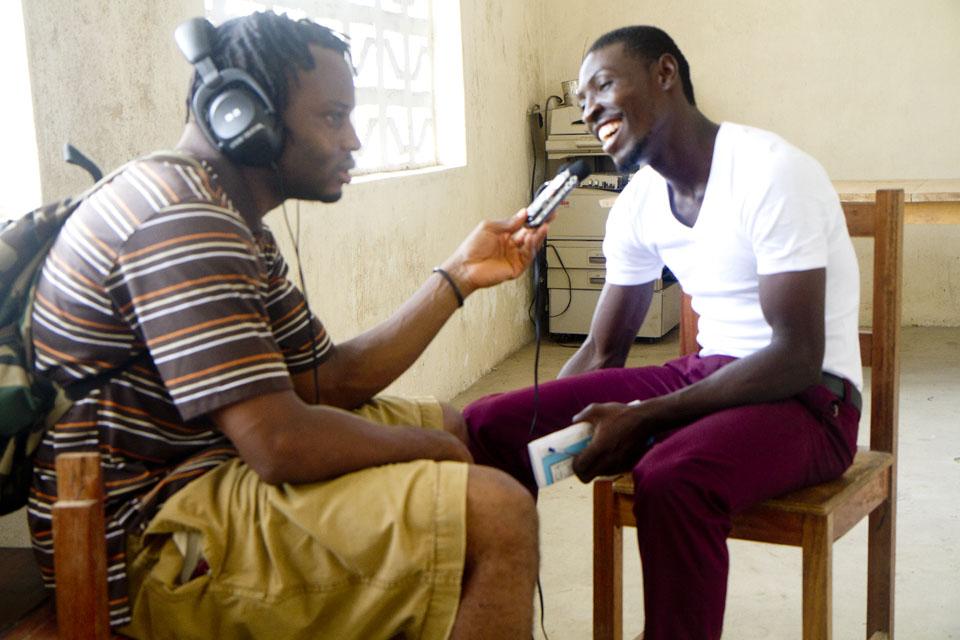
Stefan Dunbar, left, interviews Ogashe Gaye of Cestos. Gaye, class president, wants to go to medical school.
I continue to be amazed at the uncommon access we get here while working on our stories. Bureaucrats, as well as everyday people, haven’t caught on to what’s become the default answer to the media in America: “No.” Instead, here we ask — and our sources say “yes.” They are happy to have their stories told.
Earlier this week, to start off on a set of stories about education, we walked the campus of the local high school in Cestos, south of Monrovia, without escort. And we stumbled on exactly what we were looking for: a classroom full of graduating seniors who were killing time waiting for final exam scores. Within minutes, my partner Stefan Dunbar was interviewing the class president, Ogashe Gaye, who didn’t find it odd at all that we wanted to walk home with him to meet his mom at the family’s combination home and flourishing general store.
Where from there?
Off to the local hospital. Ogashe had told us that he wants to be a doctor — something the country desperately needs. So we dropped by St. Francis hospital to see who we might turn up. There, we were invited to wait for the facility’s only doctor until he emerged from surgery. When he did, he was quite happy to talk with us. So was the head nurse.
What explains this openness? Is it naivete? A giddiness over all the attention? The curiosity of local visitors from America? A thirst to talk after being so long ignored? It is probably all of these in some measure. Whatever, it strikes me as a shame that in our country, our suspicion of strangers and our layers of bureaucracy have insulated us from each other and dampened our natural curiosity.
The cynics probably would say things will change here soon, as the nation and the press mature, distrust builds, and there is more treasure to compete for. Better to keep yourself and your dreams under wraps from friends and strangers alike.
But in the meantime, it is refreshing, inspiring, and fun to just walk in, sit down, talk and learn.

